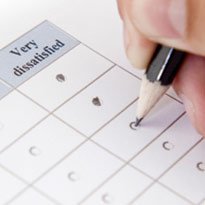Data published today by the NHS Information Centre will be used to rank GP surgeries, which will be given an overall score out of ten based on patient experience.
The Department of Health says the information will help patients choose the right GP surgery and “help GPs and the NHS to make improvements to the way they do things.”
However, a BMA spokesperson says the rating system fails to take into account the different challenges that individual GP practices may face.
More than 8,000 practices in England will get a score out of ten based on patient views of opening hours, appointment availability, waiting times and the communication skills of staff.
The data is based on patients’ responses to the GP Patient Survey, with 20 new indicators available today on the NHS IC indicator portal.
Health minister Lord Howe said the aim was to make it easier for patients to find the best care for them.
“Giving patients more information about their local NHS is a big part of our commitment to transparency and using data to drive improvements,” he said.
“Opening up this data is another step forward in giving people more choice. Patients will now be able to see exactly what the experience of being a patient at each GP surgery is really like.
“This data will not only help patients choose the right GP surgery for them, but will also give GP surgeries and the NHS new information they can use to make fresh, innovative improvements.”
The scores will be available on the NHS Choices website, where people will also be able to find a GP surgery with experience of treating people with similar conditions in areas such as diabetes, coronary heart disease and epilepsy.
A BMA spokespeson said using new technology to improve patient feedback needs to be considered, "but it must be done in a way that provides accurate information which GPs can act on".
"Reducing surgeries to a score out of ten fails to allow patients to give detailed responses," the spokesperson said.
"The rating would also fail to take into account the differing challenges that each GP practice may face, especially in terms of resources which are increasingly being squeezed by government cuts."
Katherine Murphy, chief executive of the Patient’s Association, said the scoring system would allow patients to compare the performance of their own GP with others.
She said the association’s helpline is receiving an increasing number of complaints about GPs and the provision of easily comparable data was a step forward.
The indicators on the indicator portal also include data on how many patients from each GP surgery didn’t attend their first outpatient appointment at hospital, and the delivery of pneumonia vaccinations for at-risk patients.
People can access the whole GP practice dataset, in a spreadsheet and table format, through the indicator portal.
The comparative tool is in the first stage of development, with further enhancements planned for September and December 2012. Additional GP practice indicators should also be published in September and December 2012.

